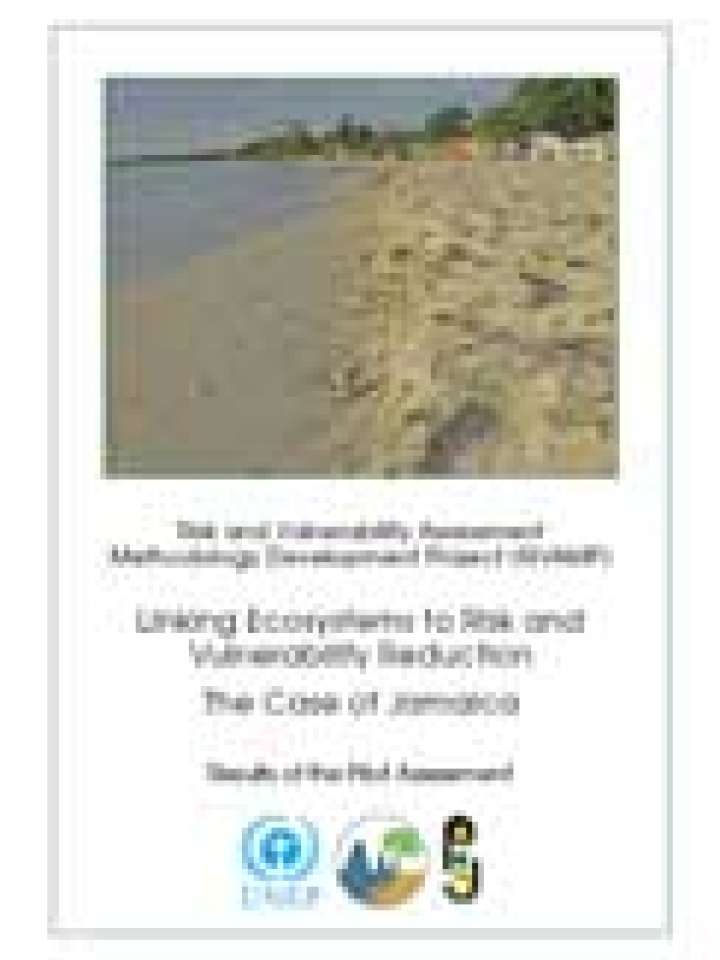Linking ecosystems to risk and vulnerability reduction: the case of Jamaica - Pilot results from RiVAMP
This document presents the findings and results of the Jamaican pilot-testing of the Risk and Vulnerability Assessment Methodology Development Project (RiVAMP) methodology, which aim is to use evidence-based, scientific and qualitative research to demonstrate the role of ecosystems in disaster risk reduction, and thus enable policymakers to make better-informed decisions that support sustainable development through improved ecosystems management. It shows that a more comprehensive methodology for risk and vulnerability assessments can factor in ecosystem and climate change concerns, and aims at feeding into development planning processes at the local and national-levels and help establish a more risk-sensitive and environmentally sustainable development course.
It is intended to be used by national and local government decision makers, especially land-use and spatial development planners, as well as key actors in natural resource and disaster management, mainly for application in SIDS or coastal areas as it focuses on tropical cyclones and their secondary effects (coastal storm surges, flooding and strong winds), and considers also accelerated sea level rise (ASLR) associated with climate change as an important factor contributing to risk of storm surges and beach erosion.
Explore further
